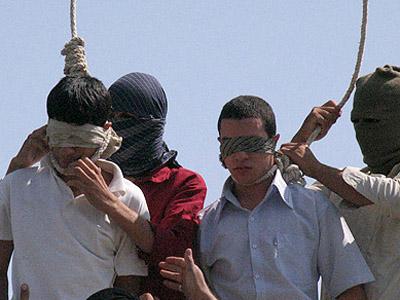The Third Committee of the United Nations General Assembly voted on Nov 16 to remove a specific 10-year-old reference to sexual orientation from the resolution condemning extrajudicial, summary or arbitrary executions. The vote tally was 79 to 70, with 26 abstentions. Canada, the United States and the United Kingdom all voted against the move.
“What it means is that there are a lot of countries that are, at best, in denial about what’s going on, and, at worst, engaging in [summary executions of gay people] themselves,” says Liberal foreign affairs critic Bob Rae.
“Because we’ve made so much progress against homophobia in Canada, we tend not to be fully aware of how widespread and deep and dark it is in other countries, and that’s what’s troubling – not just troubling, it’s outrageous, and we have to keep fighting it.”
“Canada is particularly concerned that individuals should not be targeted for killing or execution because of their real or perceived sexual orientation or gender identity,” says a spokesperson for the department of foreign affairs.
“As such, Canada urges states to take all necessary measures, including legislative and administrative measures, to ensure that sexual orientation or gender identity may under no circumstances be the basis for criminal penalties, in particular executions, arrests or detention, and encourages all states to take action to prevent extrajudicial, arbitrary and summary executions and to prosecute those who commit such acts.”
NDP foreign affairs critic Paul Dewar says part of the problem is that progress on gay and lesbian issues hasn’t been sustained, and that there is even regression on these matters.
“What needs to happen – and I’ve talked to diplomats about this, I’ve talked to colleagues about this – is getting the resolve and the resources back to get the progress going, to continue the process that was established in the 2000-2001 period, when we saw there was a lot of action around the UN,” Dewar says.
Part of that, says Dewar, is ensuring that the International Criminal Court has the resources to follow up on crimes against humanity.
“We have to use the tools that we had been given, and get them going again, and the only way I can think of doing this is to have a compact of nation states that are willing to do that,” Dewar says.
“Usually that starts with the usual suspects: Norwegian countries, middle powers who will be seized with it. I think that’s a strategy. Whether this government will do it or not is an entirely different question. I’m not sure that’s on their agenda, although stranger things have happened.”
Rae says there’s a silver lining to the change in the resolution.
“Ten, 15 years ago, the subject was not even being debated, so we’ve come a distance,” he says. “And if you make the comparison with Canada, don’t forget we’ve gone through a lot of defeats and downs as well as ups here, and we’ve come a long way, and I think we’re going to have to go through the same process worldwide.”
Rae points to his new book, Exporting Democracy: The Risks and Rewards of Pursuing a Good Idea, in which he writes about Canada engaging in gay rights around the world.
“Because our country is what it has become and is becoming all the time, we have to be leaders in this field, and constantly be talking about it in our representations, be engaging in it in our representations in other countries, be encouraging change, and be doing everything we can to expose not only cultural homophobia, but legal homophobia and what it means for people, and the real pain and the real hurt that it causes to the human family, right across the world.”


 Why you can trust Xtra
Why you can trust Xtra


